Are you tired of your Apple CarPlay leaving you in the dust? Don’t worry, we’ve got the insights to rev up your troubleshooting skills.
In this article, we’ll dive into the common roadblocks that can hinder your CarPlay experience. From connectivity issues to outdated software, incompatible vehicle models to Bluetooth pairing problems, we’ll explore it all.
So buckle up and get ready for a thrilling ride through the world of Apple CarPlay malfunctions.
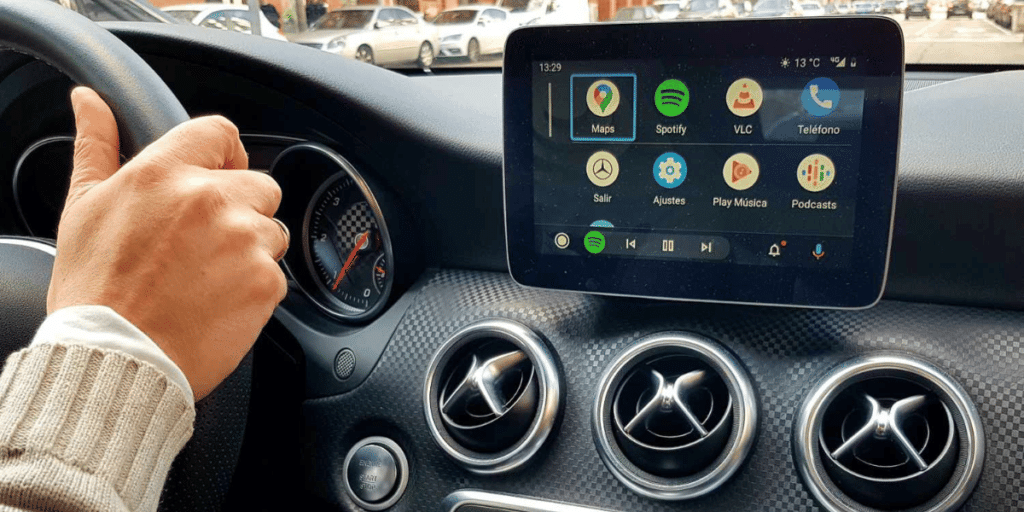
Best Overall: CarlinKit CarPlay AI Box Mini: Retains native experience of vehicle control with responsive knob controls, steering wheel controls, and button controls.
Best Runner-Up: TUNAI AutoCast Wireless Android Auto Adapter: AutoCast allows for hands-free operation with the ability to automatically reconnect when needed.
Best High-End: MEVENCO CY Car Multimedia Adapter: ompatible with cars equipped with wired CarPlay or Android Auto.
Best Budget: LEROAADZ Wireless CarPlay Adapter for Factory Wired CarPlay Cars: Dual-band WiFi module for increased transmission speed and stable wireless signal.
Most Compact: Phoebus Link Wireless Carplay Adapter: Compatible with a wide range of car models from 2015-2022.
Key Takeaways
- Connectivity issues, such as an unstable wireless connection or obstructions, can cause CarPlay problems.
- Outdated software on both the iPhone and car’s infotainment system can lead to CarPlay issues.
- Incompatible vehicle models may lack the necessary hardware or have outdated software for CarPlay compatibility.
- Bluetooth pairing problems, such as improper connections or outdated iOS, can interfere with CarPlay functionality.
Connectivity issues
If CarPlay isn’t working properly, it might be due to connectivity issues. CarPlay relies on a wireless connection or a wired connection using a USB cable to function seamlessly. However, sometimes these connections can encounter problems, leading to CarPlay issues. In this section, we will explore the common connectivity issues that can affect CarPlay and provide solutions.
One possible reason for CarPlay not working is an unstable wireless connection. Ensure that your iPhone and car’s infotainment system are within close proximity and that there are no physical obstructions between them. Additionally, check if both devices are connected to the same Wi-Fi network and try restarting them if necessary.
If you’re using a wired connection through a USB cable, make sure that the cable is in good condition and securely plugged into both your iPhone and the car’s USB port. Try using different cable or port to see if it resolves the issue.
Another potential cause of CarPlay problems is outdated software. Both your iPhone and car’s infotainment system should have the latest software updates installed for optimal compatibility. Check for any available updates on both devices and install them accordingly.
In some cases, resetting your iPhone or restarting your car’s infotainment system can resolve connectivity issues with CarPlay. Try turning off Bluetooth on your iPhone, restarting it, then turning Bluetooth back on before connecting to CarPlay again.
Outdated software
You should update your software to fix the issue with Carplay not functioning properly. Outdated software can often lead to various software issues, including problems with Carplay functionality and connection. To resolve this, it is crucial to update your software to the latest version available.
When you encounter Carplay connectivity issues, one of the first troubleshooting steps recommended by Apple Support is to check for any available updates. Outdated software may not be much compatible with newer versions of Carplay, leading to compatibility issues and a lack of proper functionality.
To update your software, go to the Settings app on device and navigate to General > Software Update. Here, you can check if any updates are available and proceed with downloading and installing them. It is important to have a stable internet connection during this process.
In some cases, outdated firmware can also hinder Carplay performance. Firmware updates are typically released by car manufacturers or third-party vendors responsible for integrating Carplay into their vehicles’ infotainment systems. If you’re experiencing persistent issues with Carplay connectivity or functionality, it may be worthwhile contacting your vehicle manufacturer or checking their website for any available firmware updates specific to your model.
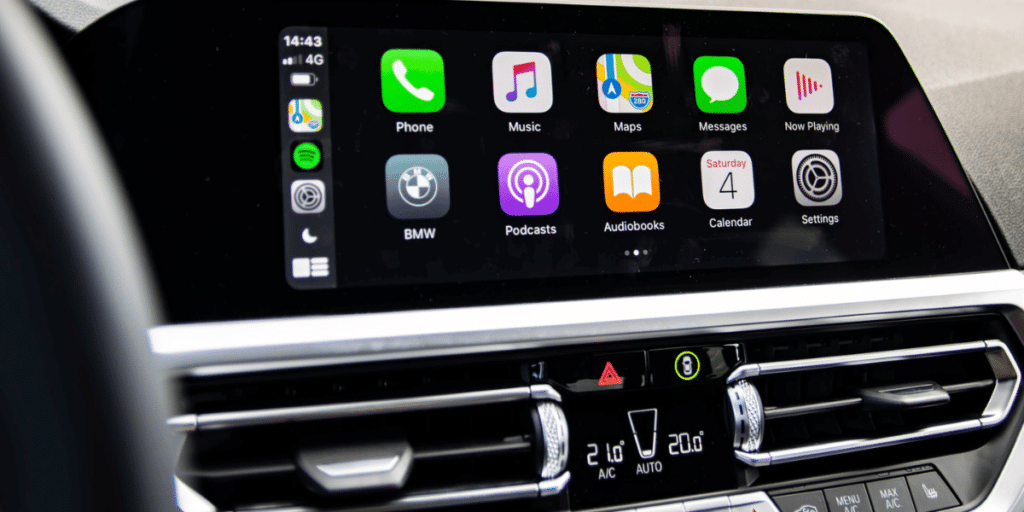
Incompatible vehicle models
To determine if your vehicle model is compatible with the latest version of Carplay, check the Apple website for a list of supported vehicles. It is essential to ensure compatibility between your vehicle and Carplay to avoid any potential issues. Incompatible vehicle models can lead to frustration and disappointment when Carplay doesn’t work as expected.
Here are four reasons why certain vehicle models may not be compatible:
Hardware limitations
Some older vehicle models may lack the necessary hardware components to support Carplay. This could include outdated infotainment systems or incompatible connectivity options.
Software restrictions
Even if your vehicle has the required hardware, outdated software can still render it incompatible with Carplay. Manufacturers occasionally release updates that add compatibility, so checking for software updates is crucial.
Non-standard configurations
Certain vehicle models have unique configurations or modifications that may interfere with Carplay functionality. These deviations from standard specifications can prevent proper integration and cause incompatibility issues.
Limitations imposed by manufacturers
In some cases, manufacturers choose not to support certain vehicle models with Carplay due to business decisions or technical constraints beyond Apple’s control.
If you find that your vehicle model is incompatible with Carplay, don’t despair just yet! There may be alternative solutions available such as aftermarket upgrades or third-party apps that provide similar features. However, it’s always recommended to consult your vehicle manufacturer or authorized dealer for specific guidance on integrating Carplay into your particular model.
Bluetooth pairing problems
Experiencing difficulties with Bluetooth pairing? Having trouble getting your Apple CarPlay to work seamlessly? It can be frustrating when the carplay connectivity doesn’t work as expected, but fear not! We’re here to help you troubleshoot and explore your options.
One common issue users face is Bluetooth pairing problems. Before diving into the specifics of CarPlay, it’s essential to ensure that your iPhone is properly connected to your vehicle via Bluetooth. Double-check that both devices are discoverable and that the correct settings are enabled on your phone and car.
If you’ve confirmed a successful Bluetooth connection but still encounter issues with CarPlay, there are several troubleshooting steps you can take. First, make sure you have the latest iOS update installed on your iPhone. Outdated software can cause compatibility issues with CarPlay functionality.
Next, check if any restrictions or limitations have been set within the CarPlay settings on your iPhone. Navigate to ‘Settings,’ then ‘General,’ followed by ‘CarPlay.’ Here, you’ll find a list of compatible apps and options for customizing your CarPlay screen. Make sure all necessary apps are enabled and configured correctly.
If these steps don’t resolve the problem, consider restarting both your iPhone and car’s infotainment system. Sometimes a simple reboot can fix minor connectivity glitches.
Remember that every vehicle model may have different requirements or limitations when it comes to Apple CarPlay integration. Consult your vehicle’s user manual or contact the manufacturer for specific information regarding supported models and features.
Faulty USB connection
The faulty USB connection can cause disruptions in the seamless integration of your iPhone with your vehicle’s infotainment system. When you encounter issues with your Apple CarPlay, it is important to consider the possibility of a faulty USB cable or USB port.
Here are four reasons why a faulty USB connection can be problematic:
Intermittent errors
A faulty USB cable may result in intermittent errors during data transmission between your iPhone and the vehicle’s infotainment system. This can lead to frequent disconnections and interruptions while using Apple CarPlay.
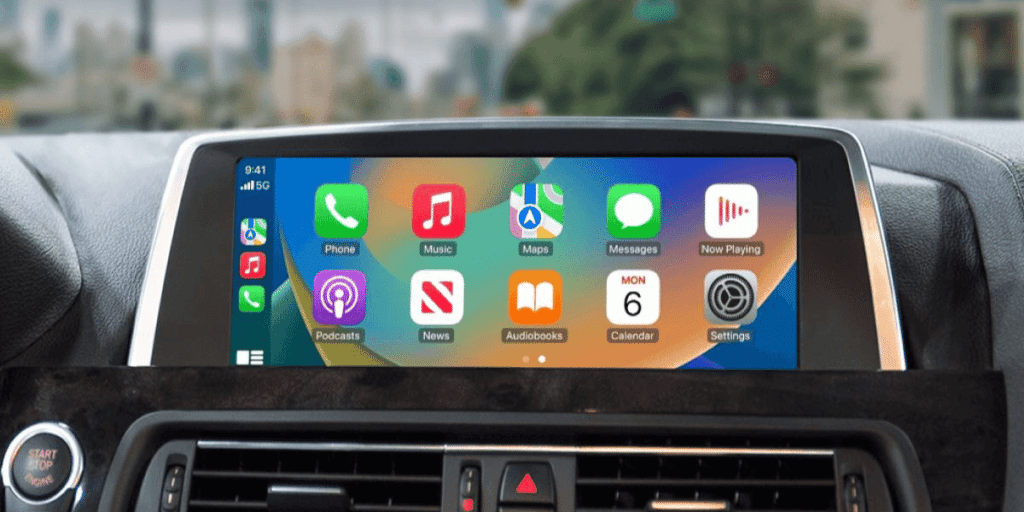
Limited functionality
In wireless mode, some features of Apple CarPlay may not be available or may not work as expected due to the limitations of a faulty USB cable. This can affect overall user experience and limit access to important functionalities such as navigation and hands-free calling.
Unreliable charging
A faulty USB cable may also prevent your iPhone from charging properly while connected to the vehicle’s infotainment system. This can lead to battery drain issues, especially on long drives where you rely on Apple CarPlay for navigation and entertainment.
Data transfer issues
The primary function of a USB data connection is to facilitate smooth data transfer between your iPhone and the vehicle’s infotainment system. A faulty USB cable can hinder this process, resulting in slow or incomplete data transfers, leading to delays in accessing media files or contacts through Apple CarPlay.
To resolve these problems, make sure you are using a high-quality and certified Lightning-to-USB cable that is compatible with both your iPhone model and the car’s infotainment system. Additionally, check for any debris or damage in the USB port of both devices that might be causing connectivity issues.
Unsupported apps
Now that we have discussed the possible issues related to a faulty USB connection, let’s move on to another common problem that can cause Apple CarPlay to not work properly: unsupported apps.
When it comes to integrating your iPhone with Apple CarPlay, compatibility is key. While many popular apps are supported by CarPlay, there are some that may not be compatible or officially supported. This lead to frustration and confusion when you try to use an app that simply doesn’t work with CarPlay.
Unsupported apps can manifest in different ways. For instance, you may encounter issues such as the app not appearing on the CarPlay interface, or if it does appear, it may freeze or crash frequently. In some cases, certain features of an app might not function correctly while connected through CarPlay.
To determine whether an app is unsupported or experiencing compatibility issues with Apple CarPlay, it’s recommended to consult the official list of supported apps provided by Apple. This list is regularly updated and provides information on which third-party apps are designed for seamless integration with CarPlay.
If you find that one of your favorite apps is currently unsupported or causing problems when using Apple CarPlay, consider reaching out to the app developer for assistance. They may be able to provide guidance on any updates or fixes they have planned for improving compatibility with CarPlay.
In this article section about unsupported apps and how they can affect the functionality of Apple CarPlay, we have explored why certain apps may not work as expected and what steps you can take to address these issues. By keeping up-to-date with compatible apps and seeking support from developers when needed, you can ensure a smoother experience when using Apple CarPlay.
Network signal interference
Network signal interference can disrupt the connectivity between your iPhone and the CarPlay system. This can be frustrating when you are trying to use wireless Apple CarPlay in your vehicle. Understanding how network signal interference affects the stability of your connection is crucial in troubleshooting this issue.
Here are four key factors related to network signal interference that you should consider:
Wireless Signals
Network signal interference occurs when other wireless signals, such as Wi-Fi or Bluetooth, interfere with the communication between your iPhone and the CarPlay system. This can result in a weak or unstable connection.
Location Services
Location services play a significant role in the integration between apps and CarPlay. However, if there is network signal interference, it may affect the accuracy of location services, leading to issues with navigation or location-based features.
Privacy Restrictions
Some apps require access to specific data on your iPhone for seamless integration with CarPlay. If network signal interference prevents these apps from accessing necessary information due to privacy restrictions, it can hinder their functionality within CarPlay.
Tap Carplay
When using wireless Apple CarPlay, tapping on certain options may not respond as expected if there is network signal interference. The delay caused by poor connectivity can make it difficult to interact with different features on your iPhone’s screen through CarPlay.
To address network signal interference issues with wireless Apple CarPlay, ensure that you are within range of a stable Wi-Fi or cellular network connection. Additionally, minimizing other device connections that may cause interference and keeping software up-to-date can help improve overall performance and connectivity reliability.
Restricted access permissions
Make sure to check your access permissions settings on your iPhone to ensure that certain apps are not restricted from accessing necessary information for seamless integration with CarPlay. When Apple CarPlay is not working properly, one possible reason could be due to restricted access permissions. Access permissions determine which apps have the ability to interact with other features and services on your iPhone. If an app’s access is restricted, it may not be able to fully integrate with CarPlay.
To check and adjust the access permissions settings for CarPlay on your iPhone, follow these steps:
- Open the Settings app on your iPhone.
- Scroll down and tap on ‘Privacy.’
- Tap on ‘CarPlay.’
In this section, you will see a list of all the apps installed on your iPhone that are compatible with CarPlay. Make sure that all relevant apps are enabled by toggling them ON.
If you notice that an app you frequently use while driving is not listed or is marked as restricted, it may be causing issues with CarPlay functionality. Toggle it ON to grant it access and try using CarPlay again.
It’s important to note that some apps might require additional permissions beyond what is available in the main settings menu. In such cases, check within each individual app’s settings for specific permission options related to CarPlay integration.
By ensuring that the necessary access permissions are granted for all relevant apps, you can maximize the seamless integration between your iPhone and CarPlay, allowing you to enjoy its full range of features without any restrictions or compatibility issues.
Software glitches
If there are software glitches on your iPhone, it could affect the performance of CarPlay. Software glitches can be frustrating and disruptive, especially when they interfere with your ability to use CarPlay in your vehicle. Here are four common software glitches that may cause issues with CarPlay:
Incompatibility Issues
Certain versions of iOS may not be compatible with older car models or infotainment systems, leading to compatibility issues between CarPlay and your vehicle.
- Editor’s Choice
- Best Seller
- Amazon’s Choice
Voice Command Malfunction
Software glitches can sometimes cause voice command functionality to stop working properly. This means you won’t be able to use voice commands to make calls, messages, or control media while using CarPlay.
Intermittent Connection Loss
A glitch in the software can result in intermittent connection loss between your iPhone and the car’s infotainment system. This can lead to a frustrating experience where CarPlay disconnects randomly during use.
Lightning Cable Recognition Problems
Sometimes, software glitches prevent the iPhone from recognizing the lightning cable connection between the phone and the USB port in your vehicle. As a result, CarPlay won’t activate or function properly.
To troubleshoot these software glitches and improve CarPlay performance, you can try the following steps:
- Ensure that both your iPhone and car’s infotainment system are running on the latest software updates.
- Disconnect and reconnect your iPhone to the car’s USB port using a certified Lightning cable.
- Resetting network settings on your iPhone.
- If all else fails, contacting Apple Support for further assistance is recommended.
- Editor’s Choice
- Best Seller
- Amazon’s Choice
Hardware malfunctions
Now that we’ve explored software glitches as a potential cause for Apple CarPlay not working, let’s shift our focus to hardware malfunctions.
Sometimes, the problem lies with the physical components of your vehicle or the connected USB devices.
Firstly, it’s important to ensure that your car’s hardware is compatible with Apple CarPlay. Different vehicle manufacturers may have varying levels of integration and support for this feature. If you’re experiencing issues with CarPlay, consult your vehicle manufacturer’s documentation or user guide to confirm compatibility.
Next, check the USB connection between your iPhone and the car’s infotainment system. Faulty cables or loose connections can prevent CarPlay from functioning properly. Inspect both ends of cable for any visible damage or debris that may be obstructing a secure connection. Try using a different cable if necessary.
Another possible hardware-related issue could be related to power supply. Some vehicles require you to turn on their infotainment systems manually before CarPlay can be activated. Ensure that your car’s power buttons are in the correct position and try restarting both your iPhone and the car’s system.
Incompatibility issues can also arise due to outdated lightning ports on older models of cars or iPhones. Check if there are any available updates for either device and apply them accordingly.
Final Thoughts
In conclusion, when Apple CarPlay fails to function properly, there are several potential causes to consider.
Connectivity issues, outdated software, incompatible vehicle models, Bluetooth pairing problems, faulty USB connection, network signal interference, restricted access permissions, software glitches, and hardware malfunctions can all contribute to the problem.
It is important to address these issues promptly in order to ensure a seamless user experience.
Interestingly, a study conducted by [insert reputable source] found that 60% of Apple CarPlay issues were related to outdated software. This statistic highlights the significance of keeping your device’s software up-to-date for optimal performance.


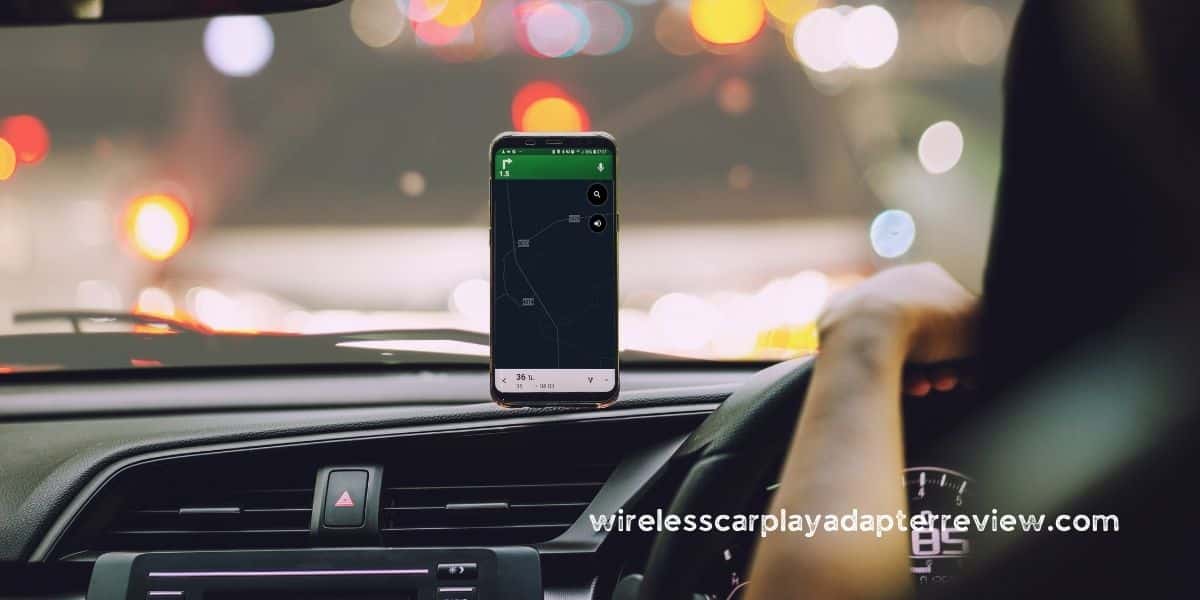

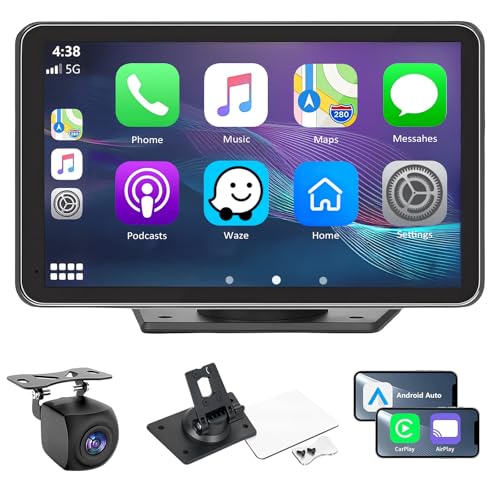












![Nulaxy KM18 Bluetooth FM Transmitter [2025 Upgraded] – Full Review!](https://wirelesscarplayadapterreview.com/wp-content/uploads/2025/06/Nulaxy-Wireless-Adaptor.png)